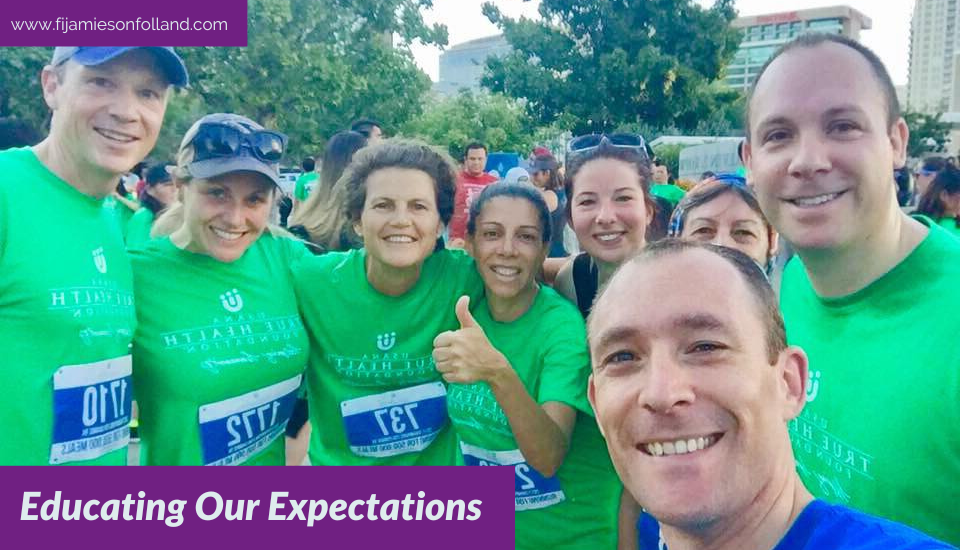Recently, I’ve been doing a lot of travelling. As I write, I’m here in London’s Heathrow Airport, en route to Russia – and this journey has taught me an approach to obstacles that I call educating our expectations.
First, I want to share a story behind this way of thinking. A few weeks ago, in Salt Lake City, UT, I was out for an early morning walk. I was a bit tired, and I fell.
I grazed my knee and rolled my ankle. Immediately I thought of the upcoming annual charity run that I complete each year – and felt disappointment. We were only 5 days out: how would I participate now?
Bare in mind what was going on in my head was a story around my old injuries to my knees and ankles from when I was hit by a car and had reconstructive surgery in 2002. My logical mind was telling me this run isn’t going to happen.
So, following this spill, and before the charity run, I was chatting with my friend Erin, and interestingly this topic came up for her. It led me to ask myself, when external events influence our plans, what do we do? And the penny dropped for me – when what we plan is challenged, we can actually challenge what we expect.
Back to my run – I realized, if I’m able to walk, that’s a great thing. Anything above this is a bonus.
And so here’s the thing. By not forcing it, and instead educating my expectations, I didn’t push or discourage myself. In response to what I could not control, I let my expectations change1.
Interestingly, I woke on the morning of this charity run, and felt so well and bouncy, I actually did run.
I didn’t ‘push it’, yet I ran.
What a blessing!
Sure, on a regular basis I avoid running to prevent more damage since my fractures in 2002, although I let myself run this one 5k each year. This year – I even came close to my previous time!
So, I’m curious: do you have a similar experience or a time when this approach might have helped you? Message me here – I’m curious to hear your ways of educating your expectations.
1In “How High Expectations Can Lead to Disappointment, Depression, and Anxiety,” Caroline D. James reminds us that “sometimes life throws curve balls at us, and for some reason or another life doesn’t go to plan. It doesn’t mean we have to stop working toward our goals; it just means that we can be happy regardless”. She continues,” instead of focusing on what we don’t have, we need to focus on what we do have”: when we practice gratitude, it’s easier to be flexible with expectations.
Fi Jamieson-Folland D.O., I.N.H.C., is The LifeStyle Aligner. She’s an experienced practitioner since 1992 in Europe, Asia and New Zealand as a qualified Osteopath, Integrative Nutrition Health Coach, speaker, educator, writer, certified raw vegan gluten-free chef, and Health Brand Ambassador.

Facebook InstagramLinkedInPinterestYouTube

